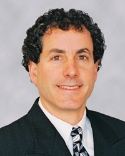 London was recently besieged with riots. In the wake of these often-organized riots, Prime Minister David Cameron has stated that Britain is evaluating whether to clamp down on social networking activities such as Twitter or Blackberry Messenger during these tumultuous periods.
London was recently besieged with riots. In the wake of these often-organized riots, Prime Minister David Cameron has stated that Britain is evaluating whether to clamp down on social networking activities such as Twitter or Blackberry Messenger during these tumultuous periods.
Cameron's statement very possibly stems from reported comments from law enforcement authorities and other politicians that Blackberry Messenger was used by the rioters to plan their civil disobedience activities. Blackberry Messenger may have been preferred by the rioters because it allows for private, encrypted messages.
It does not appear that Cameron is contemplating a mass blockage of social networking for the British population at large.
Rather, he reportedly told Parliament during an emergency session relating to the riots that "we are coordinating with police, the intelligence services and industry to look at whether it would be right to stop people communicating via these websites and services when we know they are plotting violence, disorder and criminality."
Thus, it appears that the key would be whether and to what extent there is actual knowledge that certain individuals are planning dangerous activities before there would be contemplation of disrupting their social networking coordination efforts.
Of course, government would need to work with social media companies as part of law enforcement efforts, and it is not entirely clear exactly how much cooperation can be expected up front from these companies in turning over information about their customers.
Social networking is a tremendous means to bring people together - hopefully, for legitimate, beneficial, and lawful purposes. When online communications of citizens have been shut down and prevented by certain foreign governments, that has been criticized internationally as repressive.
But what about the disruption of social networking in democratic nations when the goal is to prevent perceived, negative, civil disobedience? On the one hand, there certainly is a place for proper law enforcement. On the other hand, some people argue that rather than blocking social networking of plotting evil-doers, others online should speak out against such riotous activities in an attempt to create a groundswell of momentum against the riots. However, to the extent the rioters plan in advance in private, that may not be practical, and the rioters may not care what others say.
Stay tuned, as this unfolds.
Biography
Eric Sinrod is a partner in the San Francisco office of Duane Morris. His focus includes information technology and intellectual property disputes. To receive his weekly columns, send an e-mail to with the word "Subscribe" in the subject line.
Disclaimer: This column is prepared and published for informational purposes only and should not be construed as legal advice. The views expressed in this column are those of the author and do not necessarily reflect the views of the author's law firm or its individual partners.
Reprinted with permission of Findlaw.com







